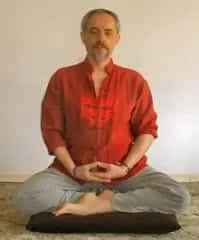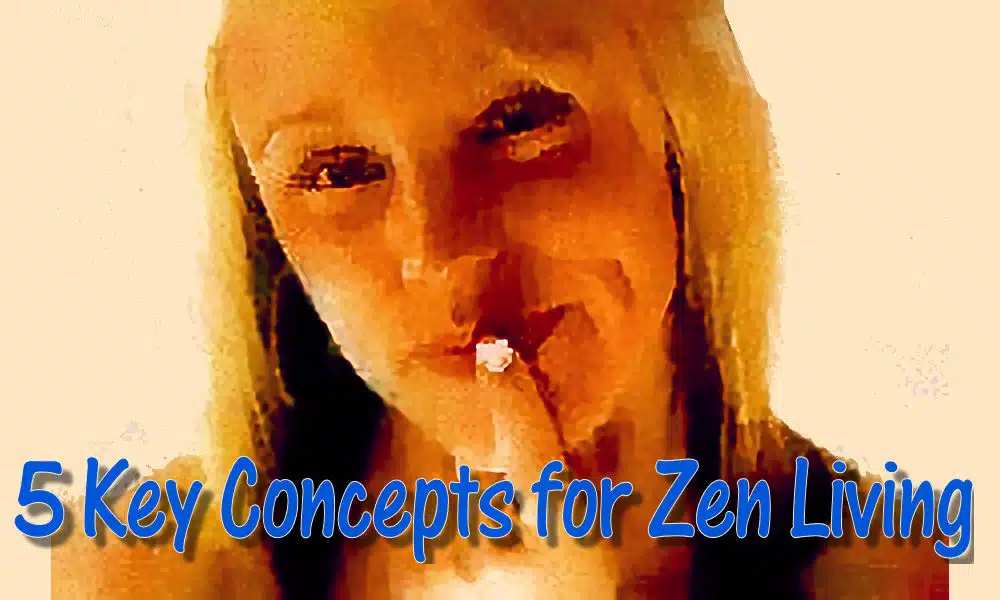5 Key Concepts for Zen Living — I thought I’d write a “start here” article to help you get on board with some of our perspectives. This article contains multiple links to our site, and to other BLOG articles. Click around and enjoy!

Want to learn more about living a full and meaningful life?
Want to have the best relationship ever?
Check out my books
1- Zen Living — Perspective Colours Everything

I write from several perspectives.
First of all, I was a Humanistic, Transpersonal Psychotherapist, until my retirement in 2013. This is baffle-gab for assuming that human nature has within it a to things which go beyond the rational and observable.
I also ascribe to Zen Buddhism, and this perspective on being colours my interest in simple presence, meditation, and experience versus thinking.
You can read more about this in my book, Half Asleep in the Buddha Hall
I’m in relationship with the lovely Darbella MacNaughton (a.k.a. Dar), and she’s been my favourite person since 1982. We use a communication model that has yet to fail us, and our approach to each other is to encourage exploration and self knowing, while keeping each other in the loop through total honesty.
You can read about the communication model we use in my book, The. Best. Relationship. Ever.
OK, so those are a few of my perspectives.
I am clear that these are not optional extras for me–these are my core beliefs / ways of doing life / ways of relating. Everything I write in some way reflects these perspectives, as well as a host of lesser themes.
If you have not explored your perspectives, and instead think that what you believe matches what others believe, you need to rethink it!
I was just talking to Darbella about a friend not liking what she heard from her partner. Dar said (with a big, cheesy grin on her face…), “Tell her to write him a script and give it to him so he says the right thing next time!”
I hope I don’t have to say she was being ironic. We often do not hear what we want to hear, and assume the other person is wrong. Hint: they’re not. They just have a different perspective.
2- Zen Living — Life is Linear, and also a Spiral

One of my favourite writers is Abraham Maslow. His Hierarchy of Needs is crucial for our understanding of human development. I wrote about his hierarchy a while back, and also looked at his work as it relates to Bodywork.
Humans develop through various stages, some of which are obvious. Physical development, for one, follows pretty universal rules, as the cliche “You have to walk before you run” points out.
Mental and spiritual development also follow patterns or stages, and what’s odd is that most people do not put much energy into this work. They assume that things are supposed to magically work out, and when they don’t, they blame others.
Our approach is simple.
We teach full and direct self responsibility.
Part of this is to accept that your job, your path, is to figure yourself out, while at the same time moving “up the spiral” — in other words, we re-visit familiar themes throughout life, and as we move past these themes, we then confront the same issue from a more complex point. It’s like walking up a spiral staircase.
3- Zen Living — Meditation teaches us self-knowing

Many people have heard of the hyped up versions of meditation. You know it’s one of those if there is a promise of future rewards connected to the meditation process.
If you meditate to: relax, feel better, become spiritual–you are missing the boat.
Meditation is a process of slowing down, and simply sitting (zazen.)
If you’d like additional Meditation information, it’s available through this link
In this process, you engage fully with living, and part of that is that you are present with all of you–with your thoughts, your emotions, your aches and pains. Meditation is “being present with.”
If you spend sufficient time meditating, you’ll notice that you do actually get more peaceful and clear, yet the zazen is “in and of itself.” This process allows us to see just how busy our minds are, and gives us the space and opportunity to “just notice.”
4- Zen Living — Breathwork and Bodywork teach us about holding and being free.

There’s a whole section on Bodywork on one of my websites. You can spend many profitable hours there, learning about where and how you hold tension and emotions in your body.
There are several ways of working with the body, from Reich’s idea of character armour and use of pressure to release blocked emotions, to acupressure–which helps with blocked chi, to thinking in terms of Chakras. If you click this link, you’ll find an entire series of articles on the topic of chakras.
5- Zen Living — Communication requires a commitment to honesty

As I noted above, Darbella and I use a communication model that was developed by Ben Wong and Jock McKeen at The Haven. It’s easy enough to learn, and is helpful for, for instance, teaching the difference between an emotion and an interpretation.
For example, people say, “You make me sad!” This is untrue. !
In a very real sense, I choose sadness in reaction to my judgement of what I think you are doing or intending. And mostly, people do not check out these interpretations with the other person, so such conversations rapidly turn into messes.
We therefore teach two things:
- 1) use of specific, self-responsible language, and
- 2) total honesty.
When I speak, my pronoun is “I.” What I report is what I am thinking, how I am interpreting my experience, and what I am going to do about my experience, emotions, and judgements. To learn a lot about communication, click this link.
So, those are 5 Zen living elements that are important to us. The links in the article great for digging deeper into any or all of these themes.
